A checkered storage bag is a symbol of the nineties
Writers Sergey Shargunov and Shamil Idiatullin explain why study the 1990s in Russia
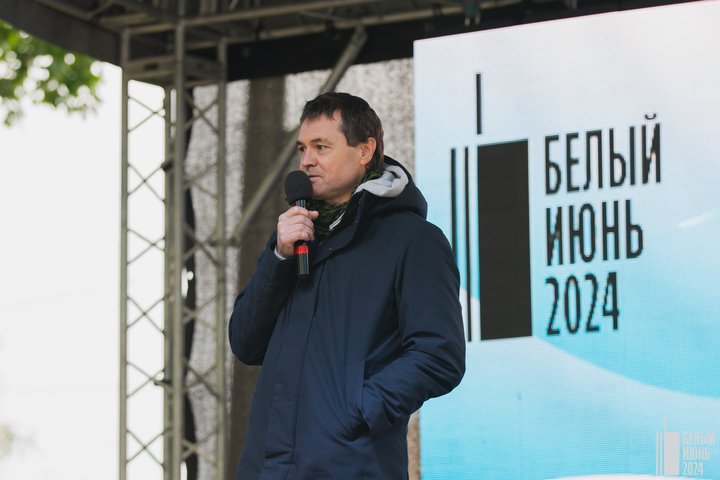
The theme of the nineties quite unexpectedly burst into our lives through literature and cinema. Unless, of course, we take the “Brigada” series, which was filmed at the beginning of the noughties. But it did not comprehend that period, but rather romanticised it. Now the trend is different. Modern directors, and to a greater extent writers, are trying to figure out what happened in the country in the 1980s and 1990s, what kind of time it was and how it shaped us. This is exactly what Sergey Shargunov and Shamil Idiatullin talked about at the White June international book festival in Arkhangelsk.
The unreflected nineties
Sergey Shargunov and Shamil Idiatullin have books set in the 1980s and 1990s. Shargunov wrote the novel "1993" in 2013. The title immediately refers to the time that is described in the book. By the way, the book was filmed by Alexander Veledinsky in the autumn of 2023. The novel's protagonist used to work in electronics in the space industry, and now works as an ordinary electrician in an emergency service. His wife Tanya works in the same organisation as a dispatcher.
“This is primarily a story about people. It seems to me that literature speaks through a person. I am interested in many turning points of the nineties and, in particular, 1993. It was important for me to show how their lives were changing. Through the feelings of a person, their confusion, loss, through the search for themself, try to feel the time that captured many and threw them to the ground," said Sergey Shargunov.
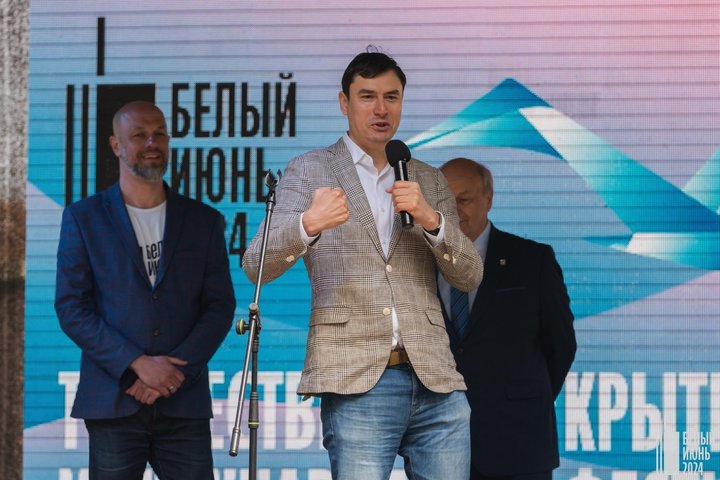
Shamil Idiatullin called himself an “impostor” at the discussion of the nineties because he did not write about this time. The action of his novel “The City of Brezhnev” takes place in 1983 in Naberezhnye Chelny. The protagonist is a boy Arthur from a prosperous family, who turned out to be a participant in tough conflicts.
“The nineties are very ambiguous. The most disgusting thing about our attitude to this time is that it is a flat, crushed attitude. We try not to remember about it. It so happened that for a long time I tried not to write “The City of Brezhnev”. Because I was too lazy and didn't want to. It seemed that someone would write better. But TV series about the 1990s, discos with music of that time, and so on began to appear. I am not a man of the nineties, my years are the eighties. I was offended that my generation was silent, as if there were no 1980s. After all, the nineties, noughties and our time grew out of them. That's why I started writing “The City of Brezhnev," Shamil Idiatullin said.
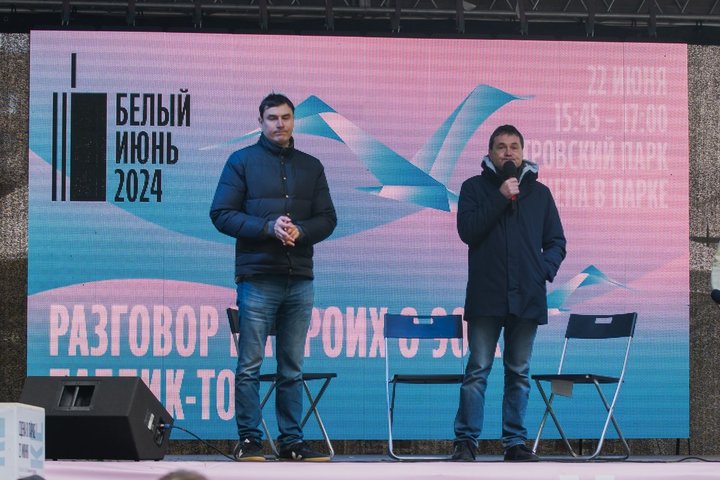
Idiatullin's novel became the first in a series of books about the eighties. Then more soulful books about the nineties appeared. But, according to the writer, this hole of reflection remained uncovered, and it is usually reacted to something like “gone, and thank God”. The writer believes that such an attitude is harmful and creates the ground for the return of that time. Therefore, we need to talk about the 1990s, “and if we get into this, we will get into it with our eyes open, but our eyes are still closed”.
Writing a novel is like going to a psychoanalyst
It is curious that both writers in their books talk about the time when they were 12-13 years old. That is, their world at that time consisted of teenage experiences and, for the most part, family stories. Sergey Shargunov compared writing his novel "1993" to going to a psychoanalyst, but only to the one you see in the mirror. Shargunov noted that he was from a generation of early-matured children. The era of upheaval, which forced teenagers into adult affairs, also played a role. But at the same time, the child's perception of the events was preserved.
“Restoring those very artifacts, faces, images, the very air of time, I tried to reconstruct what surrounded me. I tried to transfer myself there. You will not hear the radical abuse of the nineties from me. But only words of tragedy, comicality, chance for some. One could get fabulous sums, but tomorrow he would find himself with a bullet in his head at his entrance. The nineties should be studied as a large chunk of our lives, in which there were different things. We come from there. I feel like a child of the nineties," Sergey Shargunov said.
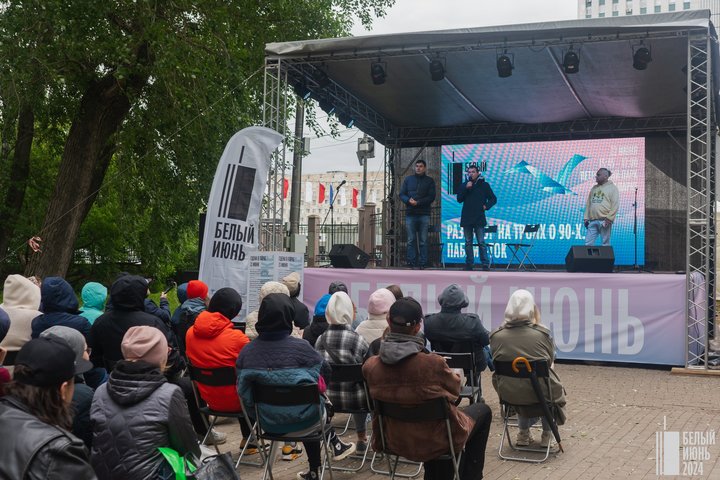
Abroad with a checkered storage bag
Shamil Idiatullin agrees with Shargunov that the nineties were different. He told a story when they discussed this topic on social networks and, as usual, everyone quarreled, because everyone had their own nineties. For some, they are associated with poverty and deprivation, for others — with freedom and opportunities. But there are things that are the same for everyone. These are the symbols of the nineties.
“One of the main symbols of the 1990s was the checkered storage bag with which they went abroad. Moreover, this bag became several symbols at once. That is, it is a symbol of how a respected person, whose whole life and the lives of his children were painted for 30 years ahead, everything breaks down. Life, backbone, and soul are breaking down. He has no job, no money, no hope, no prospects. He has only a checkered bag with which he travels abroad. And before that, he only dreamed of going abroad and understood that he needed to make a career and prove himself well, so that he would be released first to the socialist country, then to the capital country, from where he could bring some kind of tape recorder. In the nineties anyone could go abroad, but only to bring 10 Turkish sweaters or Chinese leather jackets for sale. But at the same time, many had a dream that this way they would be able to move up in life," Idiatullin added.
Ground saturated with drama
He also noted the positive moment of the nineties, when almost everything began to be published in Russia. The literature of previously banned writers appeared. There were books of a wide variety of genres on the shelves of bookstores. At the same time, bookstores of old formats were massively closed. And this was also a sign of that time, Shamil Idiatullin noted.
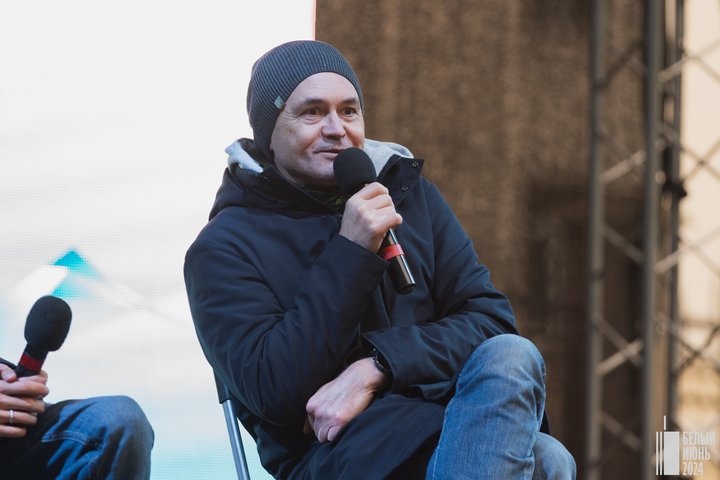
But the main thing, not only in the nineties, but at any time, it is not books or tape recorders. What is the most important thing, it is the people. And the subtle difference between who our parents were before and after we were born, who we were and who our children became, is the study of all this, according to Idiatullin, the richest dramatic material.
“In the conditions of the territory in which we live, all this happens so richly that it is difficult to survive at this level. But there is always something to write about," Shamil Idiatullin summed up.
Ekaterina Petrova — literary reviewer of Realnoe Vremya online newsppaer, author of Poppy Seed Muffins (Булочки с маком) telegram channel, and founder of the first online subscription book club Makulatura.